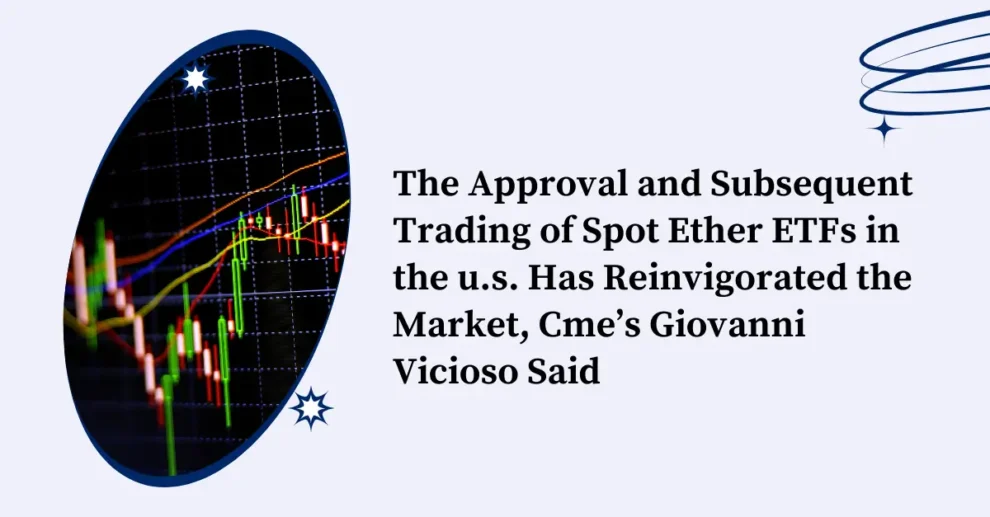The introduction of spot ETH exchange-traded funds (ETFs) in the United States sparked investor interest in the second-largest cryptocurrency, and as a result, activity in Chicago Mercantile Exchange’s (CME) ether (ETH) futures surged to unprecedented levels on Tuesday.
In a statement to CoinDesk, the exchange stated that the so-called open interest, or the total number of active bets in standard ether futures, reached a record of 7,661 contracts, or 383,650 ETH and $1.4 billion in notional terms. A month earlier, 7,550 contracts marked the previous high. The size of the typical contract is 50 ETH.
In terms of trading volume, the major player in derivatives had 14,736 contracts exchanged hands on Tuesday, three times more than the 5,010 contracts per day average for the month of July. In terms of ether futures volume, Tuesday was among the top ten days. The start of spot ether ETF trading in the United States, according to Giovanni Vicioso, global head of cryptocurrency products at CME Group, is what caused the spike in activity.
“The approval and subsequent trading of spot ether ETFs in the U.S. has reinvigorated the market, driving significant growth in volume across our Ether suite and leading to record open interest for our flagship Ether futures,” Vicioso wrote in the email.
“As more and more traders seek exposure to cryptocurrencies, our suite of regulated, reliable and deeply liquid bitcoin and ether futures products continue to provide transparent tools for managing risk and capitalising on market opportunities,” Vicioso stated. Spot ETFs invest in ether, so investors get exposure to the real cryptocurrency instead of the derivatives linked to the virtual asset. It is commonly anticipated that in the upcoming months, investor capital worth billions of dollars will be drawn into the ETFs.
With these funds, one can engage in carrying trades and other types of directional and non-directional arbitrage bets, similar to those seen in the bitcoin market. Furthermore, it is purported that authorized participants entrusted with issuing and redeeming ETF shares employ regulated goods like CME futures to manage their risk.












Add Comment